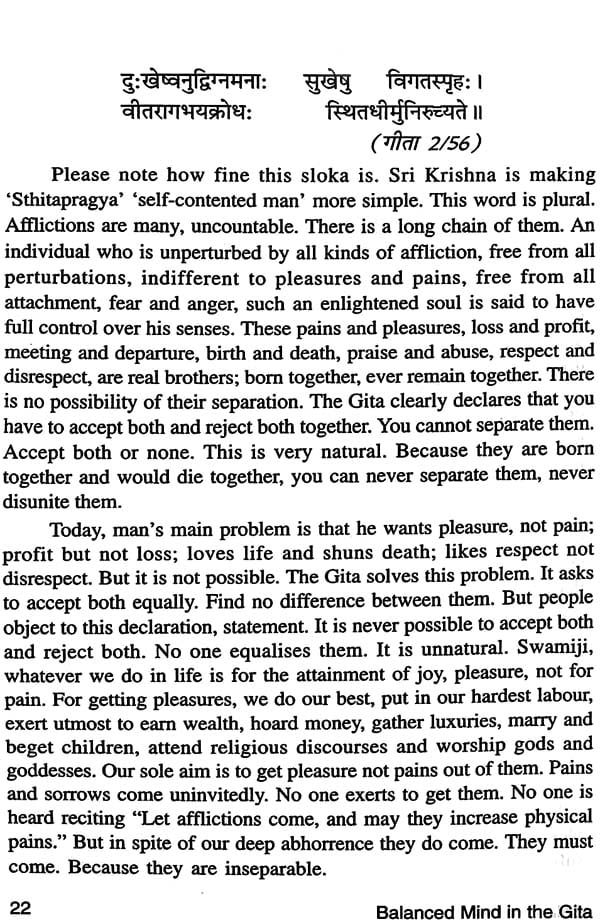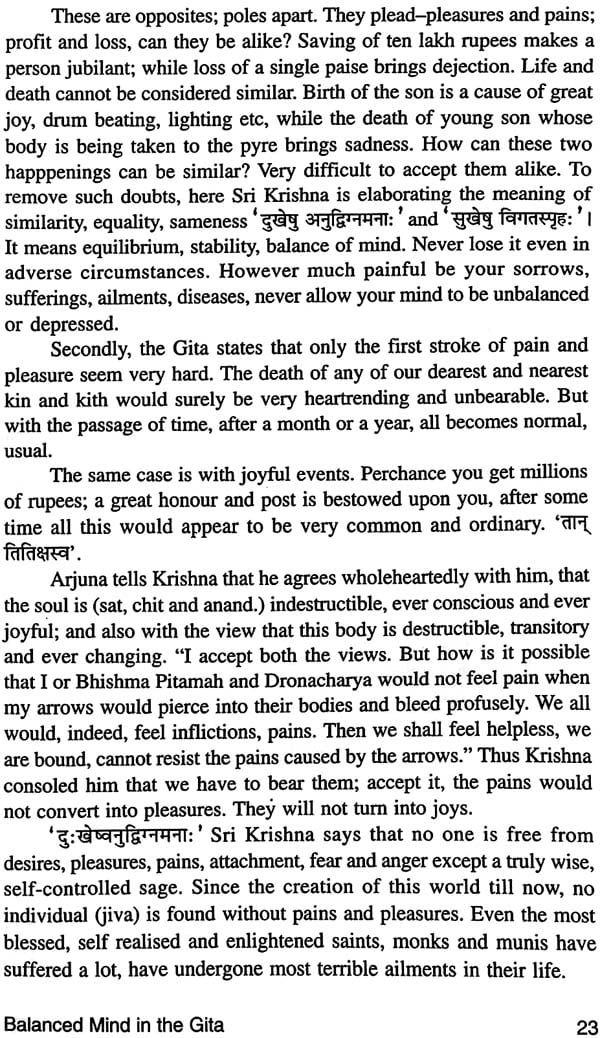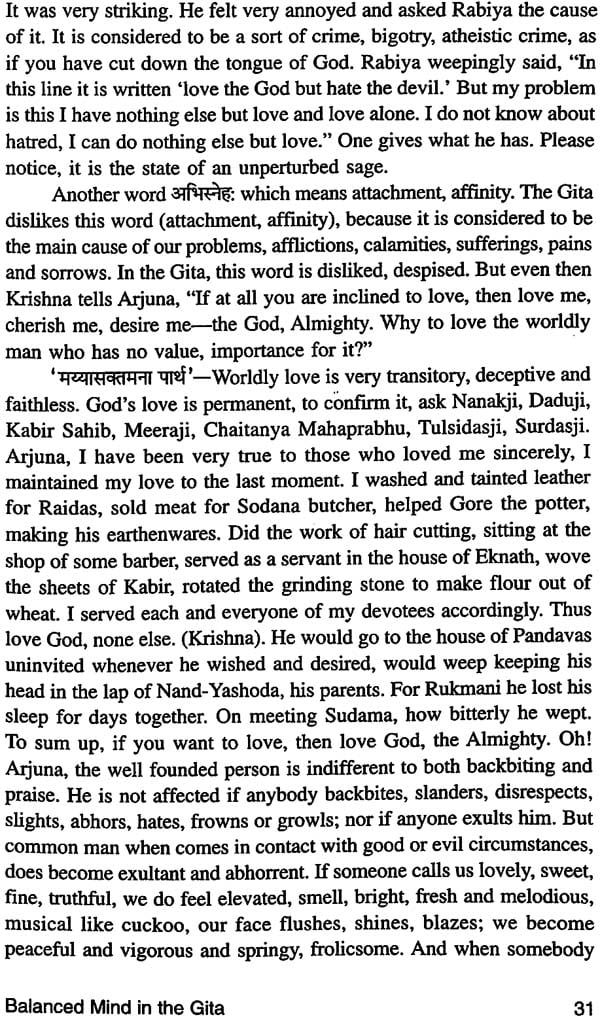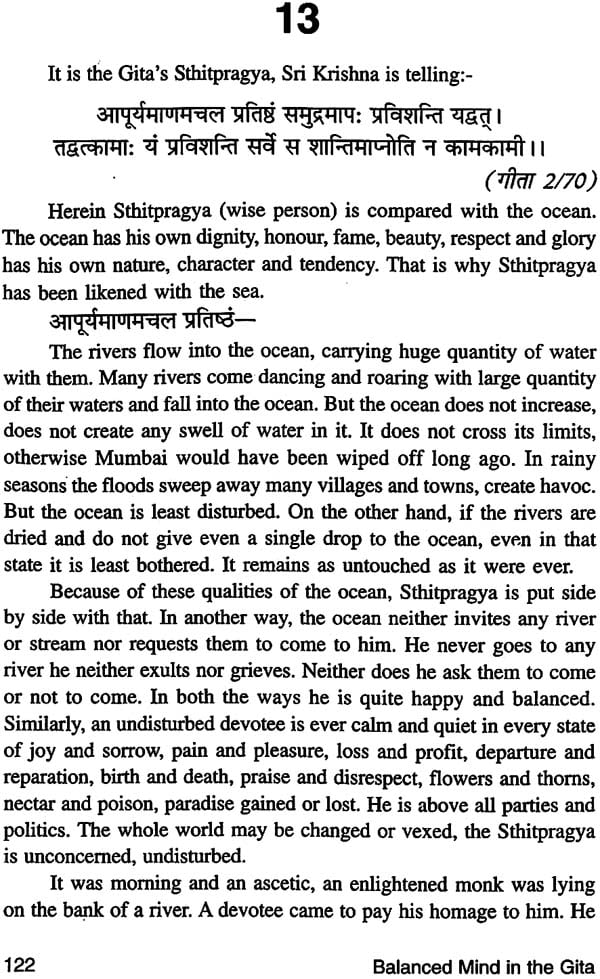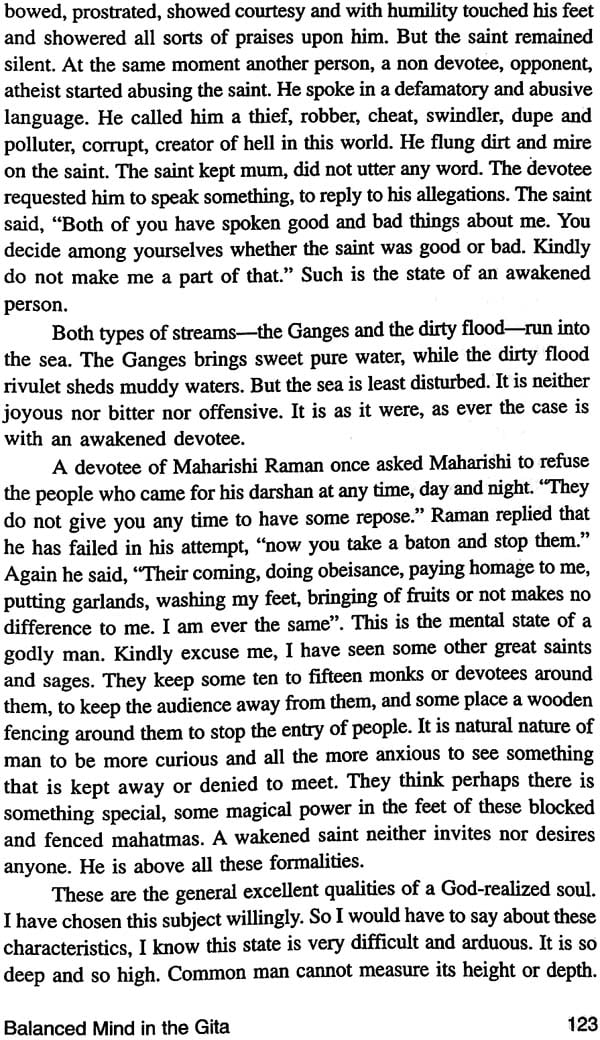
Balanced - Mind in Gita
Book Specification
| Item Code: | NAQ637 |
| Author: | Dr Kishore Das Swami |
| Publisher: | Swami Rama Tirtha Mission, Delhi |
| Language: | English |
| Edition: | 2010 |
| Pages: | 144 |
| Cover: | PAPERBACK |
| Other Details | 8.50 X 5.50 inch |
| Weight | 100 gm |
Book Description
He is an extraordinary scholar of Indian Culture and Psyche. He studied deeply and did research work in Pali and Baudh literature at Nalanda University. There he did teaching work also. He took Sanyas in Udasin Sect and completed his education at Varanasi. After that he started preaching religion and spiritualism. He has his own special thought on Upnishads. He gave very simple and interesting lectures on the Enlightened mind in Sri Mad Bhagwad Gita on Astha Channel. The listeners liked the lectures very much and his fame crossed over to the foreign countries. He has many other works to his 'credit, which carry the readers on the path of Truth.
The Present book "Balanced Mind in Gita" has the quintessence of his lectures on the subject. Many great personalities like Vinoba Bhave, Bal Gangadhar Tilak, Osho have expounded their theories on the subject but Swainiji has his own style. We are sure that the book will be a path finder for the researchers of Indian psyche.
Shrimad Bhagvad-Gita is the life of mankind. In it the Rishis have sung the song of the soul. Any sentence recited methodically becomes a song. It is unique in the sense that Sri Krishna himself has spoken this to Arjuna, thus it is known as "Bhagvad-Gita".
Gita is the name of God. In the Mahabharat Battle, two tendencies (views) are opposed against each other, resulting in the creation of the Divine Knowledge. As when negative and positive electric currents strike against each other they emanate light, similarly when divine and evil tendencies collide, the Gita gyan comes into existence. In the Gita, several methods have been stated to realise God. These are unselfish actions, devotion, knowledge, and knowledge-action combined together. But knowledge is considered to be the best one because through it the Almighty is directly realised.
In the Gita, there are eighteen chapters. The first six chapters describe the unselfish deeds, the next six describe devotion and the last six deal with knowledge. Devotion is placed in the centre, adorned in the midst, because it illumines knowledge. "Knowledge originates from devotion" says Shruti. In the Gita, the second chapter, occupies a very special place. It consists of the essence of the Gita. It is because of repeated questions asked by Arjuna that have made the eighteen chapters, otherwise the second chapter gives the complete essence.
In this chapter, the topic "Sthitapragya" has a special place. The meaning of the word Sthitapragya is one whose (intellect) intelligence is well balanced, that intellect creates sharp or subtle knowlege, which makes you realise God. Because through such pure intellect God is known. Thus intellect is considered to be a very important instrument. So Krishna says, "take the refuge of your intellect." Because if intellect is deluded, man loses his human values.
When attachment, hatred and lust enter the intellect, it trembles (to know God). For self knowledge, the intellect should have two special qualities: calmness and innocence. Sri Kutasthanandji has described Sthitapragya by giving very simple examples. Swami ji is a renowned scholar of Indian culture. This book is based on those discourses given on Astha channel. It is hoped that it would be of great help to the aspirants in stabilizing their intellect. They would surely get real peace of mind.
Contents and Sample Pages

